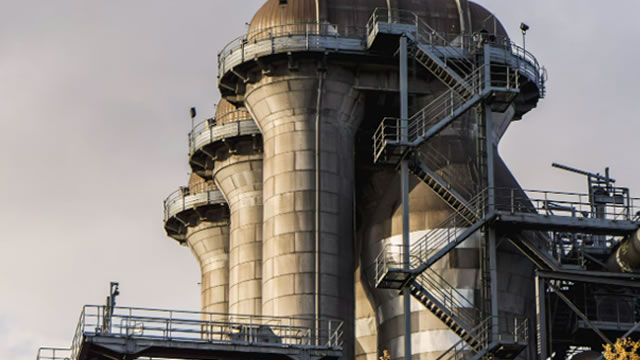Exploring the Future of Retail: Insights from CITY Furniture’s RFID Implementation
In a world where technology continues to revolutionize industries, retail is no exception. RFID (Radio Frequency Identification) technology, in particular, has been a game-changer for many retailers, enabling them to streamline operations, enhance customer experience, and boost sales. One such success story is that of CITY Furniture, a leading furniture retailer based in Florida.
The RFID Solution for Mid-Sized Retailers and Brand Owners
Recently, RFID4U, a global leader in RFID and IoT solutions, and Zebra Technologies Corporation, a global leader in digitizing and automating frontline workflows, held a joint webinar, “Enabling RFID for All Retail: Affordable Solutions for Mid-Sized Brand Owners and Retailers.” The webinar provided valuable insights into how RFID technology can benefit mid-sized retailers and brand owners, who often face unique challenges in implementing such advanced solutions due to budget and resource constraints.
Transforming CITY Furniture’s Operations with RFID
CITY Furniture’s Vice President of IT, Jorge M. Capote, shared his experiences of implementing RFID technology in their stores. Capote explained that before RFID, their inventory management process was manual and time-consuming. They relied on weekly manual counts, which were prone to errors and inefficiencies. However, with RFID, they have seen a significant improvement in their inventory accuracy and operational efficiency.
Boosting Operational Efficiency with RFID
- Real-time inventory visibility: RFID tags allow CITY Furniture to have real-time visibility into their inventory levels. This information is available at the store and corporate levels, enabling faster response to customer demand and more accurate stocking.
- Automated inventory counts: RFID eliminates the need for manual inventory counts, saving time and reducing errors.
- Improved order fulfillment: With real-time inventory data, CITY Furniture can process orders more efficiently, reducing order lead times and improving customer satisfaction.
- Loss prevention: RFID tags can help prevent shrinkage by enabling real-time monitoring of inventory levels and identifying discrepancies.
- Streamlined receiving: RFID receivers can be used to automate the receiving process, reducing the time and effort required to manually process incoming shipments.
Enhancing the Customer Experience with RFID
Capote also shared how RFID has helped CITY Furniture enhance the customer experience. With real-time inventory visibility, they can ensure that the right products are in stock and available for customers when they visit the store. RFID-enabled mobile applications can help customers locate products quickly and easily in large stores, improving their shopping experience.
The Future of RFID in Retail
The webinar also explored the future of RFID in retail, with experts discussing the latest trends and innovations in the field. One such trend is the integration of RFID with other technologies like IoT, artificial intelligence, and machine learning, enabling more advanced analytics and insights.
The Impact of RFID on Consumers
From a consumer perspective, the implementation of RFID technology in retail can lead to several benefits. These include:
- Improved product availability: RFID can help retailers ensure that the right products are in stock and available for customers when they visit the store.
- Faster checkout: RFID-enabled self-checkout kiosks can help consumers checkout faster and more efficiently.
- Personalized shopping experiences: RFID can enable retailers to offer personalized shopping experiences based on customer preferences and shopping history.
- Enhanced security: RFID can help prevent theft and fraud by enabling real-time monitoring of inventory levels and customer activity.
The Impact of RFID on the World
The implementation of RFID technology in retail is not just a trend but a paradigm shift. It is transforming the way retailers operate and interact with their customers. This technology has the potential to:
- Revolutionize supply chain management: RFID can help retailers gain real-time visibility into their supply chain, enabling faster response to customer demand and reducing inventory carrying costs.
- Create a more sustainable retail environment: RFID can help reduce the need for manual inventory counts and paperwork, reducing the carbon footprint of retail operations.
- Empower small and mid-sized retailers: RFID solutions are becoming more affordable and accessible, enabling small and mid-sized retailers to compete with larger retailers.
- Transform the shopping experience: RFID can help retailers offer more personalized and efficient shopping experiences, enhancing customer satisfaction and loyalty.
Conclusion
In conclusion, the implementation of RFID technology in retail is a game-changer. It is transforming the way retailers operate, enabling them to streamline operations, enhance the customer experience, and boost sales. The success story of CITY Furniture is a testament to the power of RFID technology in retail, and the future looks bright. With the continued innovation and integration of RFID with other technologies, we can expect to see even more advanced and personalized shopping experiences in the future.
As a consumer, you can look forward to more convenient and personalized shopping experiences. Retailers will be able to offer real-time inventory visibility, faster checkout, and personalized product recommendations. The world of retail is on the brink of a technological revolution, and RFID is at the forefront of this change. So, stay tuned for more exciting developments in the world of retail!





